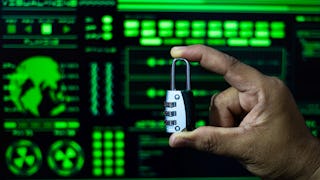Mobile Security | Defend the Devices That Move the World
Smartphones are no longer just communication tools—they’re digital vaults, business terminals, and personal ID cards all in one. And with every swipe, tap, and download, they’re becoming the new frontline of cyber risk. This course gives you the skills to secure, investigate, and defend the most pervasive technology in modern life. Protect the Pocket-Sized Threat Surface Developed by Macquarie University’s Cyber Skills Academy—ranked in the top 1% of universities globally and recognised as Australia’s leading cyber security school—this course has been co-designed with industry to reflect the fast-evolving realities of mobile threat landscapes, digital forensics, and enterprise security. You’ll gain deep technical knowledge and forensic capability across: • Mobile architecture fundamentals including iOS and Android OS, secure boot processes, and encryption systems. • File system analysis and the interpretation of mobile digital artifacts for forensic investigation. • The use of specialist tools like Autopsy, FTK, and debug environments to recover and analyse mobile data. • Evidence acquisition techniques that uphold integrity and are admissible in court—across memory, storage, and network traffic. • Deep static and runtime behavioural analysis of mobile applications to uncover hidden threats and trace user interactions. • Mobile device security mechanisms (e.g., authentication, encryption, anti-malware) and how attackers exploit them—and how to stop them. Forensically Ready. Security Smart. Legally Sound. This course is ideal for law enforcement personnel, digital forensic analysts, security professionals, and anyone working in threat detection, mobility, or enterprise IT. You’ll not only understand how mobile devices are targeted, but how to investigate them thoroughly—and secure them intelligently. Whether you’re building resilience into your organisation or preparing for mobile threat response, this course ensures you have the skills to defend what’s in every hand and pocket. Investigate with precision. Defend with confidence. Secure the mobile edge.

















